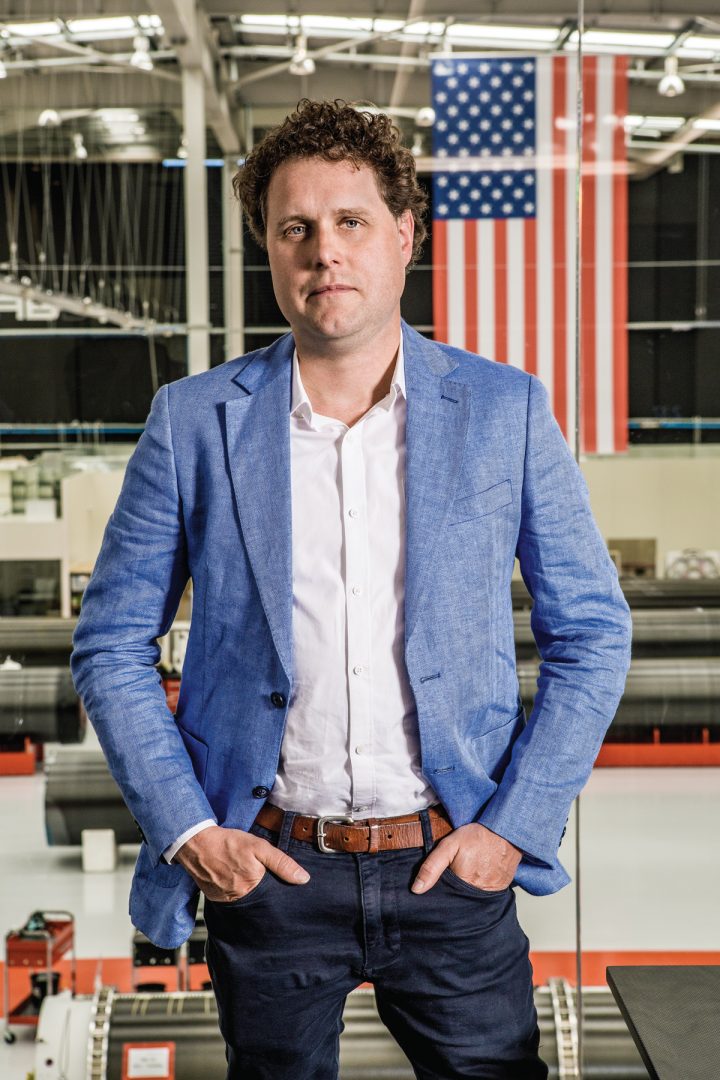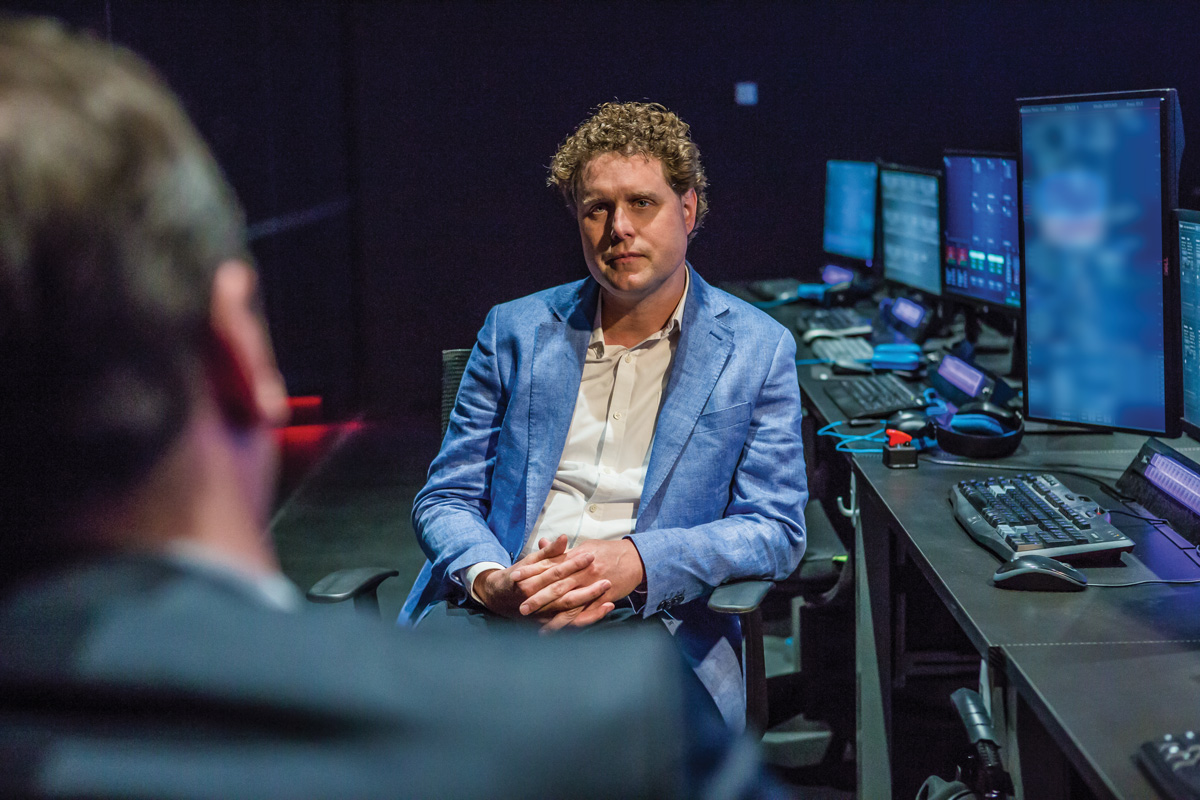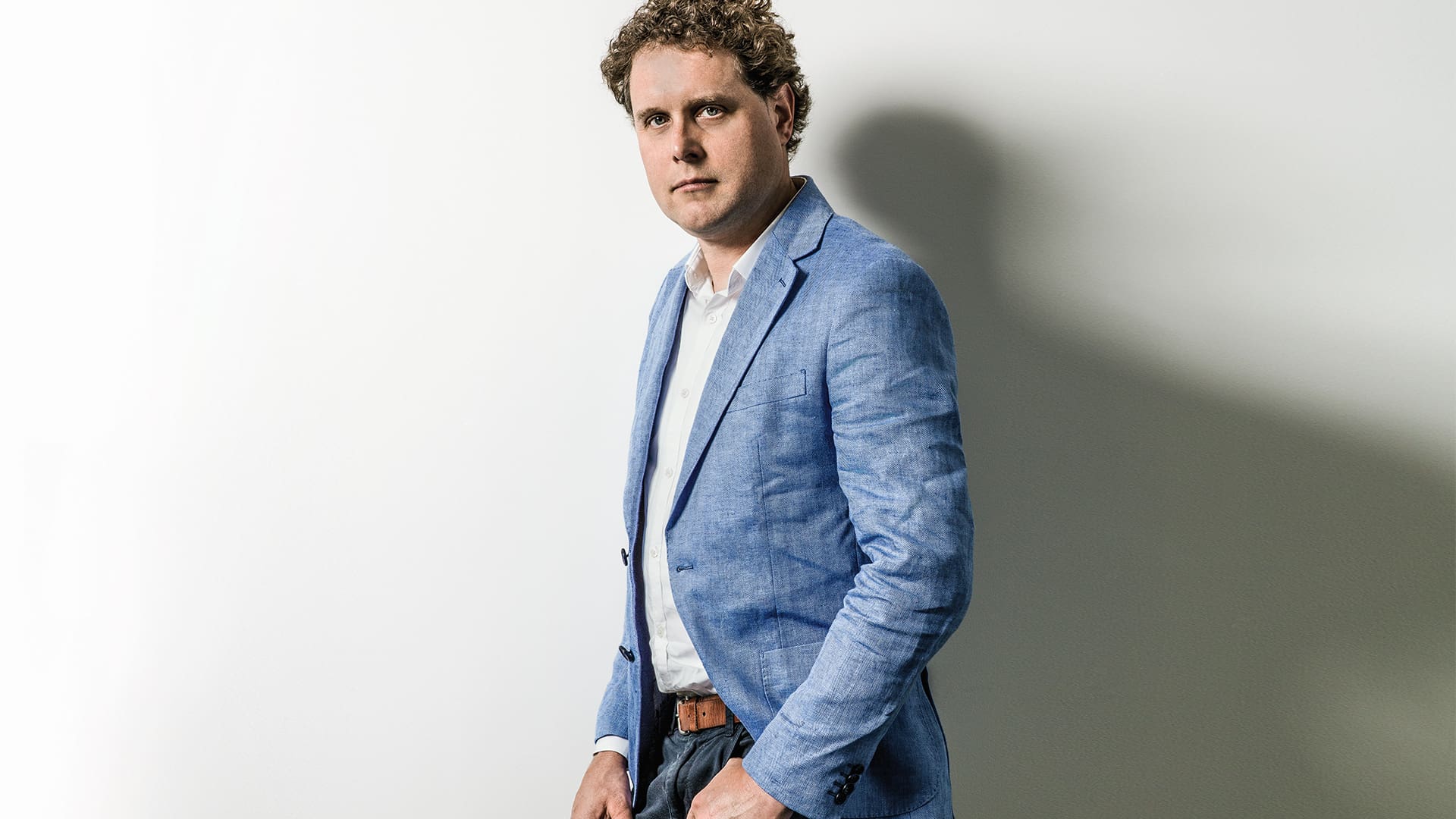M2 Man of the Year 2019: Peter Beck
Opening an article with a quote is a pretty cliché of way of introing a piece, but when I was pondering about what it means to be a ‘Man of the Year’, I kept coming back to Theodore Roosevelt’s famous, ‘Man in the Arena’ quote. The full quote is pretty damn powerful and worth a Google, but here is the crux of it:
“It is not the critic who counts; not the man who points out how the strong man stumbles, or where the doer of deeds could have done them better. The credit belongs to the Man who is actually in the arena”.
Roosevelt wrote that 109 years ago – a bygone era so far removed from the normalcy of today’s ‘Send me a calendar invite’ and ‘I’ll add you on LinkedIn’.
What is consistent though is the idea of the critic.
We have a deep-rooted problem with tall poppy syndrome here in New Zealand. From childhood, we’re taught to use the term ‘try-hard’, and, as we get older, the pressures of sticking within convention can kill dreams before they ever get off the ground.
Grit, determination and persistence are at the core of the entrepreneurial spirit. Having an idea is one thing. Consistently pursuing that goal in the face of adversity is a whole ‘nother ball game.
Peter Beck was M2’s 2018 Man of the Year.
And we’re proud to share that Peter is our Man of the Year for 2019.
The Rocket Lab CEO, CTO and Founder, Peter Beck had a successful 2018 featuring three successful orbital launches, closing $140 million in (USD) Series E financing, and the creation of the Rocket Lab Scholarship the year before.
Peter’s strong 2019 featured five successful missions (with a 14-day launch window having opened late November for a sixth) and the unveiling of its Spacecraft Program ‘Photon’, allowing Rocket Lab to become an integrated satellite build and launch service.
A recent report by Deloitte commissioned by the by the Ministry of Business, Innovation and Employment found that the space sector contributes $1.7 billion to the NZ economy, with, you guessed it, Rocket Lab a crucial part of that growth.
Kiwis are officially in the space race and Peter is the rocket engine that has helped us enter the foray.
It only makes sense for Peter to be a back-to-back Man of the Year winner.
The sky isn’t the limit for Peter – space is now his playground.

Dreams to Reality
Peter grew up in Invercargill, into a family with a strong engineering background that helped cultivate his drive to achieve great things.
As a youngster, Peter was a regular attendee of the Southland Astronomical Society, fascinated by the discussion and research shared with society members. He wanted to launch rockets from a young age but this idea was shot down by his high school careers advisor in textbook tall-poppy fashion, “My parents were called into a meeting with the high school careers counsellor because my description of what I wanted to do with my career didn’t fit any pre-defined boxes”, Peter recalled in an interview with Simon Hendry. “I remember the careers advisor commenting that it was absurdly unachievable.”
Even though his initial plan was to go to university, Peter decided to pursue a trade instead. NZ universities didn’t have any astronautical engineering courses, and Peter saw that the most efficient way to make his rocket dreams a reality was to get a trade and learn practical engineering skills.
A toolmaking trade at Fisher & Paykel helped him refine his hands-on skill, and after-hours access to cutting edge machinery and material in the company workshop proved to be invaluable.
Beck’s rocket pursuits led him to work at Industrial Research (now Callaghan Innovation), where he would meet Sir Stephen Tindall, who later invested in Rocket Lab.
Peter had boyhood dreams of working at NASA or Lockheed Martin in the United States but after visiting some of the United States’ largest aerospace companies, he discovered no one was addressing what he saw as the biggest gap in the space market – small satellite launch. On the flight home from the U.S., Peter began planning the development of his own rocket company instead.
“I realised that was not the path for me”, Peter shares with M2. “These companies weren’t going to provide the vehicle for me to achieve what I want to achieve. The only option was to do it myself”.
Over the next 10 years, Peter would build Rocket Lab into the name it’s known as today – assembling a team of some of NZ’s most brilliant engineers and scientists, convincing investors to come on board, and refining rocket designs with a plethora of test launches in the process.
Fuel for Thought: Tips for the New Wave
It’s pretty clear that Beck’s a driven guy. You’ve got to be if you want to be the only guy on the planet, other than Elon Musk, that has been able to launch small rockets dedicated to delivering satellites into low earth orbit.
When it comes to fostering the new wave of entrepreneurs here in NZ, Peter is genuine and passionate. According to Beck, it all begins with the youth and letting them know that drive and entrepreneurial spirit is key in helping achieve lofty goals:
“If we start at a real grassroots level, how many kids could you go to and ask the question, what is an entrepreneur? And what does that mean for you? Are we teaching it in schools that actually, you don’t need to go to Fonterra and get a job. You can create your own job, you can create your own industry and you should follow your passion and the things that you want to do, not necessarily go to university and then look for your next job.“
Starting by changing the mindsets of the youth is a fantastic first step, but the NZ business environment isn’t as nurturing as say Silicon Valley:
“What interests me is giving New Zealand entrepreneurs a fair crack, because the environment that we have in New Zealand means that they’re just not. They have wonderful ideas, wonderful opportunities but they’ve just been suffocated. In New Zealand, especially, it’s very easy to take a wonderful idea and have it smothered.”
Beck says that the counter to this is the power of networking and he also speaks to strength in numbers – with human relationships taking precedence over dollars and cents:
“Capital is the least valuable thing in the whole investor transaction. The real value is when you can hook people up with really good contacts and really good networks. Networks with meaningful ways to grow the company. It’s not about the money, even though there’s no money there, it’s about the network and introducing people to networks that grow the business, not just networks to grow capital.”

To Infinity and Beyond
NASA has Cape Canaveral. For Rocket Lab, Māhia Peninsula nestled in the Hawkes Bay has become the perfect spot to set up their spaceport.
All these rockets are going up into space, but what for? It all boils down to satellites. The satellites of today are getting smaller and smaller, increasing in functionality and becoming cheaper to produce. Rocket Lab specialises in launching small satellites or ‘smallsats’ and CubeSats into orbit.
We’ve been reliant on satellites for quite some time already, but as we dive even deeper into the digital age, so too does our reliance on data, big data and open data. The satellites peppered across the Earth’s orbit are a conduit of data, navigation and communication and Rocket Lab helps get these sats up there.
2019 has been a busy year for Peter and Rocket Lab with five launches completed so far and a new window having opened late November. A select group of this year’s Rocket Lab customers include DARPA and U.S. Air Force Space Test Program – some pretty big names with a fair bit of pressure involved:
“We have flights that have spacecraft that are worth extraordinary amounts of money. We’ve got one spacecraft that it took a guy’s 25 years worth of a professional careers work and you’re entrusted to deliver that safely to orbit”.
The announcement of Photon was another success for the business – an all-inclusive spacecraft build and launch service that enables small satellite customers to focus on delivering their service from orbit and generating revenue, rather than having to build their own satellite hardware. All customers need to do is bring their payload or idea to Rocket Lab, and they sort out the satellite design and build and launch as part of a bundled package.
When we asked Peter about future trends and industries that have the most potential, weather is a field that shows plenty of future need:
“Not many people know this but America has 30 weather satellites, that’s it. And that is a very, very small number and most of those are ageing out. If you could build a constellation of weather satellites with the latest sensors, you can really start to build a map of this planet and really start to understand some of the stuff that’s going on.”
Climate change is becoming ever more important and satellites will be crucial in helping procure data to aid with issues such as sea-level rise and potential natural disasters.
So, what lies ahead for Peter Beck and Rocket Lab?
“One thing for sure is we’ve just started. This is the start, this is not the midpoint or anywhere close to the conclusion. This is the starting point for me and there’s a lot more to do. This is just phase one of a multi-phase project”.
It’s pretty inspiring that a boy from Invercargill who dreamt of launching rockets into space is now living his dreams, launching rockets from Māhia Peninsula and bringing New Zealand into the space race in the process.
In a social environment where it’s easy to get discouraged and dissuaded from going after your dreams, Peter Beck is an example of sticking to your vision and passion and willing ideas into reality. All this in spite of the fact that there wasn’t a New Zealand astronautics industry. And a high school advisor told him his goals were too far-fetched.
It’s not the critic who counts. It’s the Man in the Arena that counts.
Grit, perseverance and vision can get you a long way. It’s not rocket science.
Congratulations to Peter Beck. Here’s to our M2 2019 Man of the Year.

